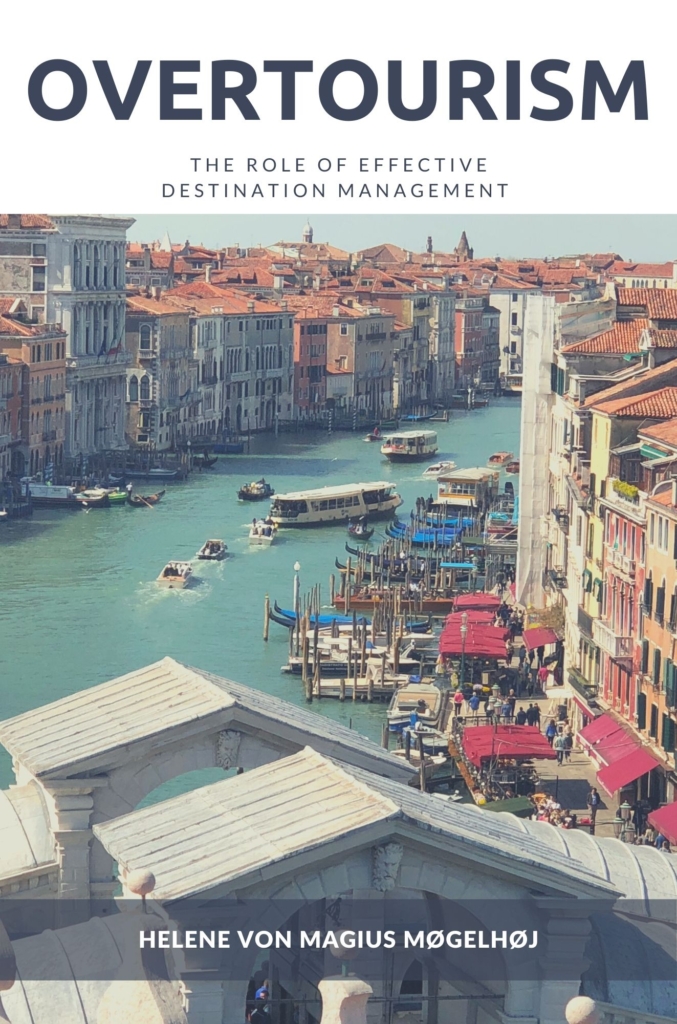At the end of 2019, overtourism was a frequently discussed topic in the media and among tourism professionals across the globe. The debate was how do we manage the exponential growth in tourism at destination level to avoid being overwhelmed by overtourism? No one knew that by mid-2020 tourism would come to a virtual standstill exposing the economic fragility in tourism-dependent destinations.
Although, growth in tourism has been paused momentarily, it is recognised that travel is an aspirational activity and that people always have and will travel when they are able to do so. Therefore, destinations need to prepare for a return to growth in tourism in the longer term.
If anything, the coronavirus pandemic has exposed the dire consequences for destinations that are too dependent on tourism. The crisis has highlighted the importance of having a balanced economy with a focus on sustainability rather than relying on tourism as the main industry sector.
A successful tourism industry plays an important role in promoting the attractiveness and appeal of a destination not only as a place to visit but also as a place to live, work, study, and invest. Tourism supports the preservation and conservation of cultural and natural heritage assets. At the same time, the many micro and SMEs operating in the tourism sector are responsible for creating vital local jobs and contributing to economic growth and prosperity.
In my view future overtourism can be managed or even reversed through effective destination management. Essentially, this requires strong stakeholder collaboration and engagement with the local community at destination level combined with an appropriate DMO structure. For many DMOs the primary objective is to attract more visitors and to ensure maximum utilisation of tourism-related infrastructure rather than managing visitors once in situ.
My book identifies some of the positive steps that destinations can take to develop and manage their tourism sector in a more sustainable manner that brings benefits and economic prosperity to the local host population while avoiding overtourism and some of the associated negative social and environmental impacts.
DMOs should consider how to work smarter and introduce measures to better manage visitor flows and seek to attract those visitors who deliver the most added value at local level. This will help ensure that a destination’s carrying capacity is managed rather than exceeded and situations that give rise to tourism phobia and anti-tourism campaigns are avoided. Achieving effective destination management requires a systematic approach to measuring and monitoring a destination’s performance according to a set of agreed key indicators supported by a flexible long-term strategy.
The fragmented nature of tourism means there are no easy solutions, nor a one-size-fits-all model. A key part of the solution is to engage and collaborate with the local host population and key stakeholders in order to achieve strategic alignment and consensus. In summary, effective destination management requires a multi-disciplinary approach where tourism forms an integral part of the destination’s wider regulatory and policy framework and is not considered in isolation.
Helene von Magius Møgelhøj is an expert adviser and speaker on sustainable tourism, hospitality, and economic development. She has over 20 years of international experience gained across the private, public, and third sectors. Her extensive knowledge and skills cover a broad spectrum of key issues ranging from tourism strategy formulation to sustainable destination planning and from assessment of financial viability to enhancing destination competitiveness. Her book ‘Overtourism: the role of effective destination management’ will be published by Business Experts Press in April 2021.

